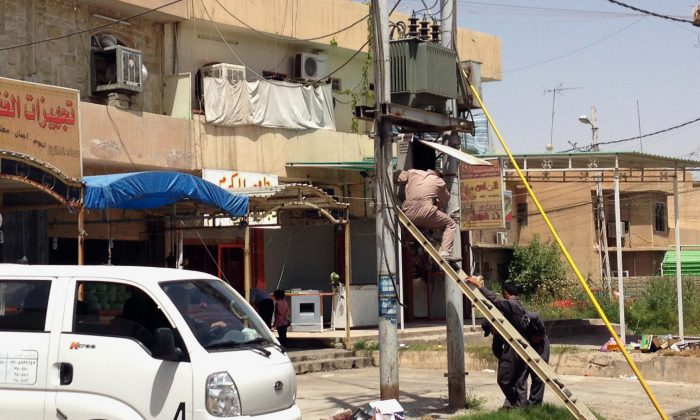The State Department has previously said that the $10 billion in funds can be used by Iran only for humanitarian purposes.
The United States has renewed a waiver to allow Iraq to buy electricity from Iran, according to a U.S. Department of State spokesperson.
The State Department issued the 120-day waiver on Nov. 8, the spokesperson told The Epoch Times in an email. It was the 23rd waiver issued since 2018. The last waiver was issued in July.
Critics have said that the waiver financially benefits Iran, the world’s leading state sponsor of terrorism, which could be used for malign activities such as funding their proxies including Hamas, Hezbollah, and the Houthis. Israel has been actively at war with Hamas and Hezbollah.
“The issue here is money is fungible—and limiting use for humanitarian purposes opens up other streams of funding for the Islamic Republic to feed to its terror proxies and partners,” Jason Brodsky, policy director of United Against Nuclear Iran, previously told The Epoch Times.
Iraq will pay Iran $10 billion for the electricity. The U.S. State Department has previously said that Iran can use the money only for humanitarian purposes.
During its tenure, the Biden administration has lifted some sanctions on Iran, which has allowed billions of dollars to flow into the country, mostly in oil sales revenue.
Although Trump’s first administration also issued a waiver to Iraq to buy Iranian electricity, Trump has suggested that he would take a hardline stance on Iran if reelected.
“Iran was weak, Iran was broke, they had no money, and they wanted to make a deal,” he told the Republican Jewish Coalition in September.
Trump has also expressed an openness to making a deal with Iran.
“Sure, I would do that,” he said at a news conference in September. ”We have to make a deal, because the consequences are impossible. We have to make a deal.”
Trump did not go into specifics as to what a deal would look like.
The Trump administration launched in 2018 what it called a “maximum pressure” campaign against Tehran, withdrawing from the 2015 Iran nuclear deal and reinstating sanctions lifted under it in addition to enacting fresh sanctions.
In an interview earlier this month with CNN, Brian Hook, who was the special envoy to Iran and currently leads the State Department portfolio for the Trump transition team, said that Trump would resume his strategy toward Iran.
“President Trump’s foreign policy is hiding in plain sight. … I just think that it’s fairly obvious what he did in the first term,” Hook said.
“He isolated Iran and he weakened Iran economically. And you talked about a regional balance of power shifting. … I have no reason to think that he won’t do that again. And he was very successful at it.”

